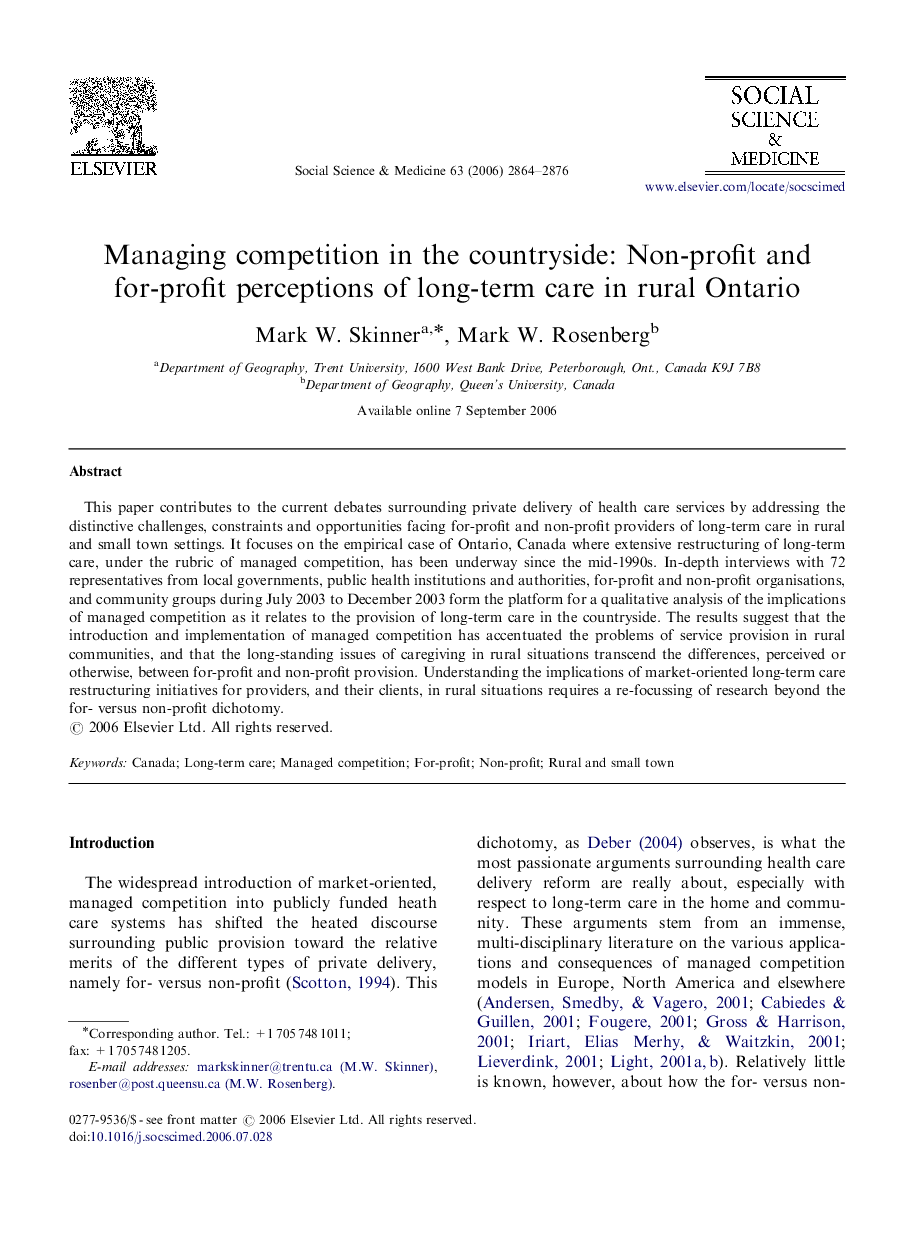| Article ID | Journal | Published Year | Pages | File Type |
|---|---|---|---|---|
| 953959 | Social Science & Medicine | 2006 | 13 Pages |
This paper contributes to the current debates surrounding private delivery of health care services by addressing the distinctive challenges, constraints and opportunities facing for-profit and non-profit providers of long-term care in rural and small town settings. It focuses on the empirical case of Ontario, Canada where extensive restructuring of long-term care, under the rubric of managed competition, has been underway since the mid-1990s. In-depth interviews with 72 representatives from local governments, public health institutions and authorities, for-profit and non-profit organisations, and community groups during July 2003 to December 2003 form the platform for a qualitative analysis of the implications of managed competition as it relates to the provision of long-term care in the countryside. The results suggest that the introduction and implementation of managed competition has accentuated the problems of service provision in rural communities, and that the long-standing issues of caregiving in rural situations transcend the differences, perceived or otherwise, between for-profit and non-profit provision. Understanding the implications of market-oriented long-term care restructuring initiatives for providers, and their clients, in rural situations requires a re-focussing of research beyond the for- versus non-profit dichotomy.
